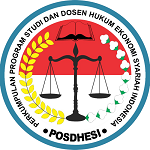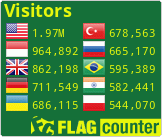Unraveling Cultural Practices and Sharia Economic Law in The Seaweed Trading System Of Kuala Stabas, Lampung
DOI:
https://doi.org/10.32332/muamalah.v3i1.8859Keywords:
Buying and selling, Seaweed, Pocket system, Sharia Economic LawAbstract
Buying and selling are essential economic activities integral to fulfilling daily needs. In the community of Kuala Stabas, Pesisir Barat Regency, Lampung, Indonesia, a unique system for trading seaweed using plastic bags without prior weighing is prevalent. The legality of this system under Sharia economic law remains unclear. This study aims to address this research gap by evaluating the legitimacy of the seaweed trading system using plastic bags from the perspective of Sharia economic law while also examining the local wisdom inherent in the practices of the Lampung community. This field research employs a qualitative descriptive approach, gathering primary data through interviews with key informants and supplementing it with secondary data. The uniqueness of this study lies in its in-depth analysis of local practices that have been scarcely studied. Findings indicate that the practice of trading seaweed using plastic bags in Kuala Stabas is lawful and permissible under Sharia economic law, as it aligns with the principles, requirements, and conditions of trade in Sharia, including Aqidain, Sighat (ijab qabul) and Ma'qud 'alaih. This research significantly contributes new insights into the local trading dynamics within the framework of Sharia economic law, enriching the existing literature and providing a foundation for further research.
Downloads
References
Downloads
Published
Issue
Section
License
Copyright (c) 2024 Hervin Yoki Pradikta, Rawan Ba Wazier, Yenda Nofika, Hasanuddin Muhammad

This work is licensed under a Creative Commons Attribution-ShareAlike 4.0 International License.
All articles in the Mu'amalah: Jurnal Hukum Ekonomi Syariah can be disseminated on condition that they still include the identity of the article and the source (Mu'amalah). The publisher is not responsible for the contents of the article. The content of the article is the sole responsibility of the author.
Authors who publish this subject agree to the following terms:
First, the Authors retain copyright and grant the journal rights from the first publication with the work simultaneously licensed under a Creative Commons Attribution-ShareAlike 4.0 International License that allows others to share the work with an acknowledgement of the work's authorship and initial publication in this journal.
Secondly, the authors can enter into a separate or an acknowledgement of its initial (e.g., post-institutional repository or publish it in a book) publication in this journal.
![]()
Third, the authors are permitted and encouraged to post their work online (e.g., in institutional repositories or on their website) before publishing work is cited.








